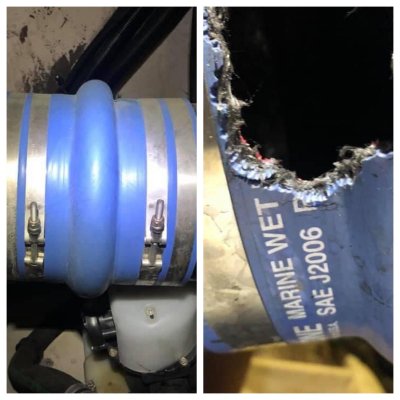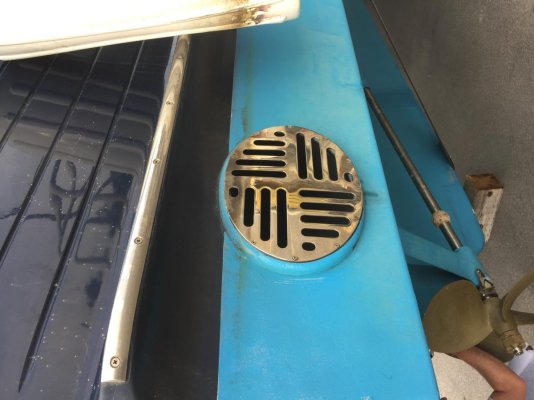When I bought my boat it had rubber plugs in the exhausts. Of course I forgot to remove them one day before starting the engines, and was only able to recover one before they sank. I know there were muskrats in the marina, we saw their tracks.
Anyway, those plugs seemed like they'd be pretty inexpensive. They fit right into the exhaust outlet, so there was no tunnel for the critters to crawl into, and so (apparently) no interest in chewing. Or maybe just no way to get their teeth around it. Anyway, they must have worked, never had a muskrat gain entry or chew a plug while we were there.
I've never seen them for sale anywhere, and even now I was unable to find any using an image search. Maybe they were repurposed from some other industry.
The best I can describe them is like the white plastic stoppers they put in large mailing tubes, but made of black rubber.


